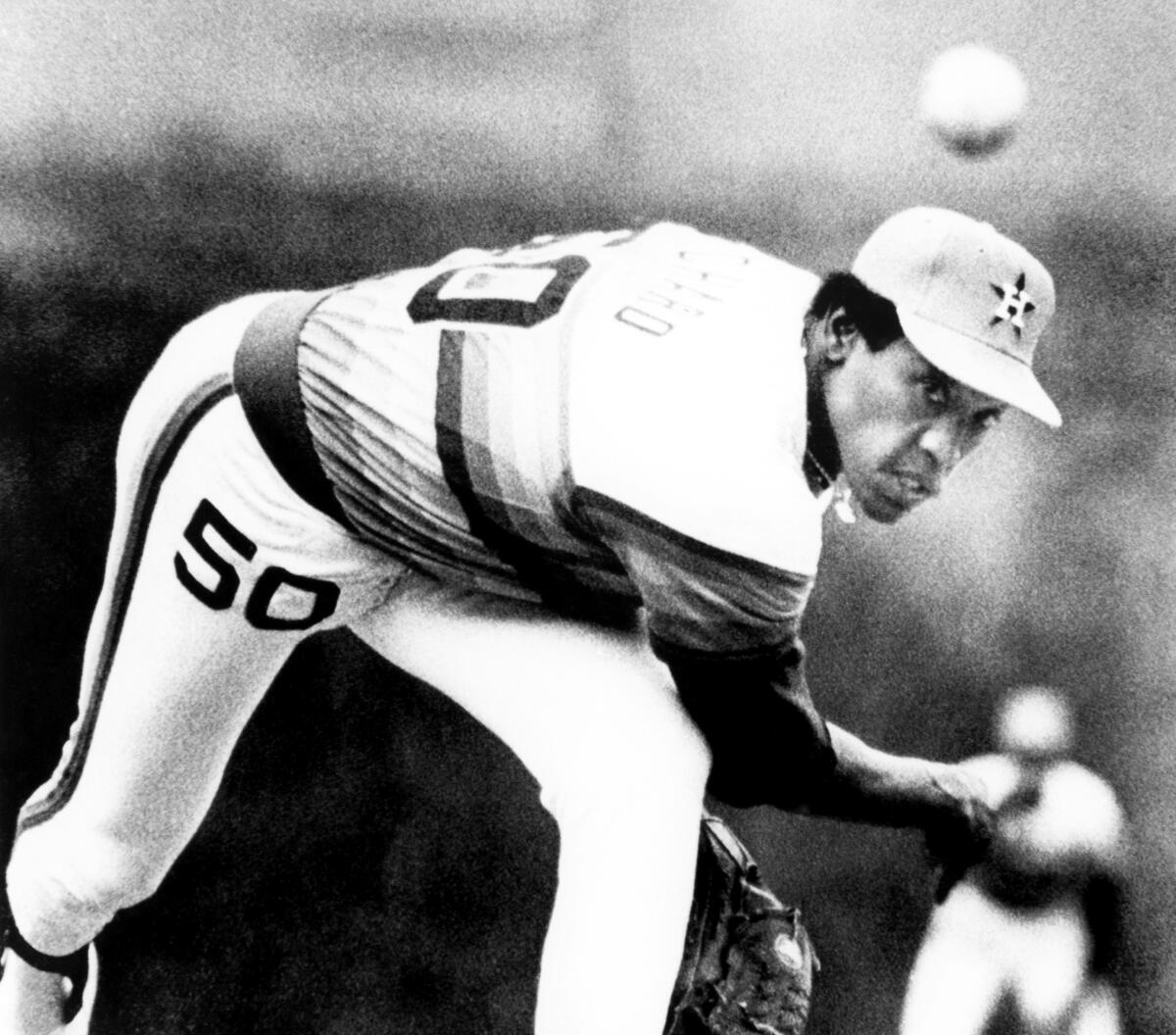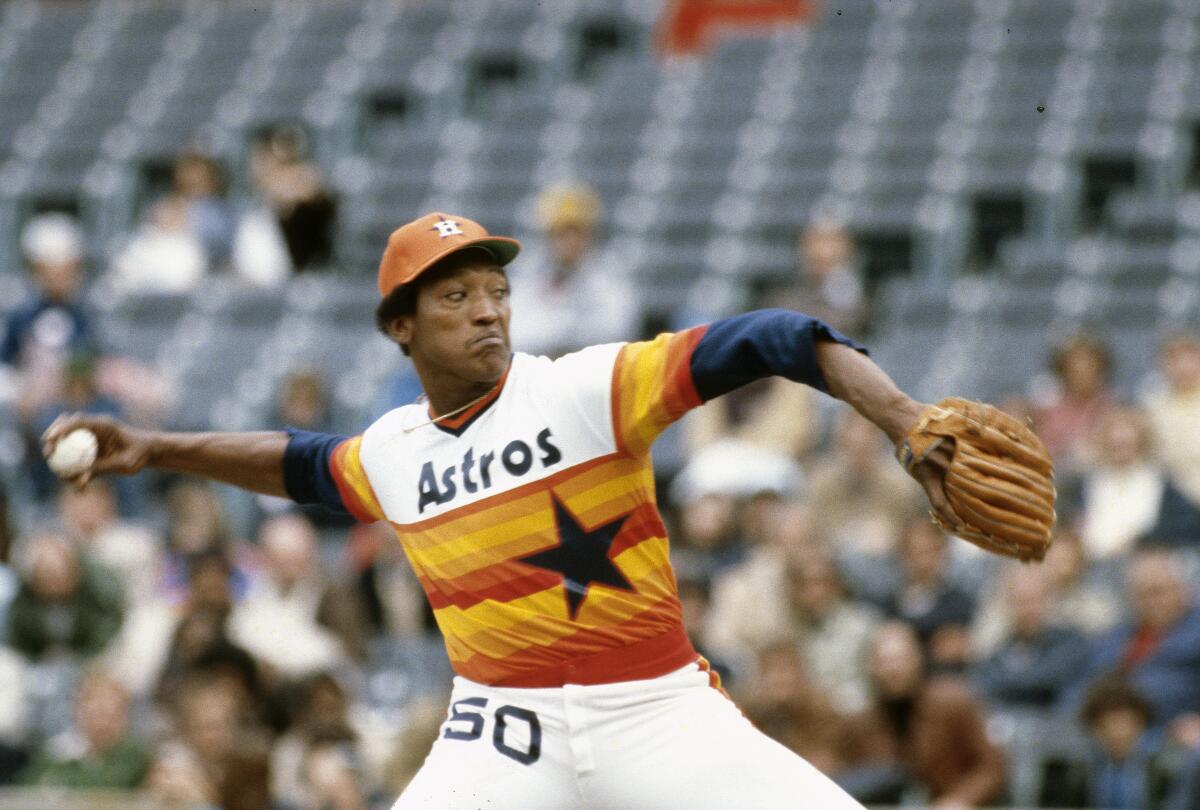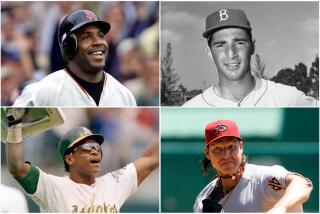J.R. Richard, power pitcher for 1970s Houston Astros, dies

HOUSTON — J.R. Richard, the 6-foot-8 flame-throwing right-hander who spent 10 years with the Houston Astros before his career was cut short by a stroke, has died at age 71.
The team on Thursday announced that he had died a day earlier, but did not provide a cause of death or say where he died.
“Today is a sad day for the Houston Astros as we mourn the loss of one of our franchise icons, J.R. Richard,” the Astros said in a statement. “J.R. will forever be remembered as an intimidating figure on the mound and as one of the greatest pitchers in club history. He stood shoulder to shoulder with club icons Larry Dierker, Joe Niekro and Nolan Ryan, to form a few of the best rotations in club history.”
Richard intimidated hitters with an effectively wild delivery, a fastball that often touched 100 mph and an almost unhittable breaking ball. He was selected by the Astros with the second overall pick in the 1969 draft and struck out 15 batters in a complete-game win over the Giants in his major league debut on Sept. 5, 1971.
He pitched for Houston from 1971-80, going 107-71 with a 3.15 ERA and 76 complete games. Richard won a career-best 20 games in 1976, the first of four straight seasons with at least 18 wins.
In 1978 he became the first Astro to strike out 300 batters in a season when he led the majors with 303. The next year, he led the National League with a 2.71 ERA and fanned 313 to again lead the majors.
Richard was having another great year in 1980, posting a 10-4 record with a 1.96 ERA in the first half of the season and starting for the National League in the All-Star Game on July 30. Less than a month later, Richard suffered a major stroke that brought his career to an end.
Before there was a Randy Johnson or a Roger Clemens or a Doc Gooden, there was a towering 6-foot-8 right-handed pitcher who threw so hard he could melt a radar gun and blew so many batters away they should have named a Hurricane after him.
Richard, who was just 30 at the time, attempted a comeback but was never able to make it back to the majors and was released by the Astros in 1984.
Former outfielder Dusty Baker told reporters on Thursday that Richard was the toughest pitcher he’d ever face.
Playing for the Dodgers during Richard’s era, Baker hit a measly .157 when he faced the Astros pitcher. Ron Cey did even worse at .148, and Rick Monday, now a Dodger announcer, hit a lowly .125. From 1977 until 1980, Richard was 11-0 against Dodgers.
“It was like J.R. was only throwing from about 50 feet,” said Baker, who now manages the Astros. “With his reach and he was all legs, you didn’t have much time to make up your mind.... You didn’t really feel comfortable at the plate.”
Enos Cabell, who played with Richard for six seasons, raved about his teammate and longtime friend.
“He was one of the greatest pitchers we ever had and probably would have been in the Hall of Fame if his career was not cut short,” he said. “On the mound, he was devastating and intimidating. Nobody wanted to face him. Guys on the other team would say that they were sick to avoid facing him.”
Richard left his mark on the Astros’ record books and is tied for second in career ERA (3.15), third in strikeouts (1,493), fourth in complete games (76) and fifth in wins (107) and shutouts (19). He was inducted into the team’s inaugural Hall of Fame in 2019.
José Cruz, an outfielder who also played with Richard for six years, recalled what it was like playing behind him.

“He was one of the greatest Astros ever,” Cruz said. “When he was pitching, we knew that we were going to get a ‘W.’ I didn’t get too many balls hit to me in the outfield when he pitched because he was so dominating.”
Richard fell on hard times after his career ended. A series of bad investments, failed businesses and a divorce left him penniless, and he was briefly homeless in the mid-1990s.
He eventually got his life back on track and worked as a minister in his later years.
A Times staff writer contributed to this story.
More to Read
Start your day right
Sign up for Essential California for the L.A. Times biggest news, features and recommendations in your inbox six days a week.
You may occasionally receive promotional content from the Los Angeles Times.






